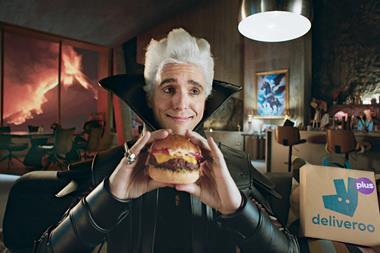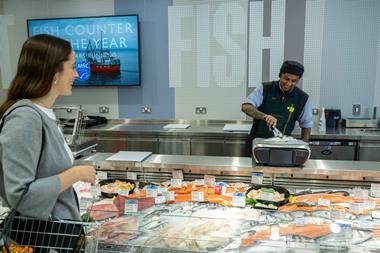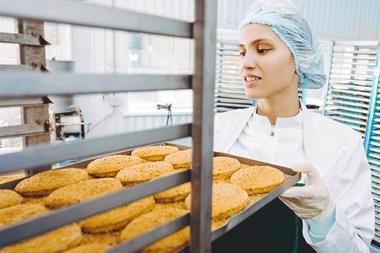Nature Valley is a fast-growing but relatively small brand in the UK, with sales of £24.5m.
But it’s a $1bn brand globally, and also part of the giant General Mills empire. So when Olympic organisers LOCOG announced last week that it had signed up Nature Valley as the official cereal bar of London 2012, alarm bells started ringing.
As a tier three sponsor it doesn’t enjoy the same privileges as tier one or two sponsors. But as a senior fmcg sales director put it: “It looks to me like General Mills is about to eat Cadbury’s lunch. I would be extremely concerned if I were Cadbury or Kraft. Not to mention p*ssed off.”
In 2008, as a tier two sponsor, the then British-owned Cadbury had signed a deal worth at least twice the estimated £10m-20m General Mills is paying. Billed “the official treat provider of London 2012,” the deal includes all confectionery and packaged ice cream.
But even though it produces plenty of snack bars of its own albeit none of them particularly healthy it now finds itself with a giant rival intending to bill itself as a healthy alternative.
Nick White, a partner at sports sponsorship experts Couchmans LLP, believes the Nature Valley sponsorship is an example of how sponsors can find themselves trumped.
“LOCOG is creating very narrow, exclusive categories. Its job is to maximise the income it can get and this is probably the biggest sports event of all time so it has the power to dictate terms of sponsorship, even to big companies.
“But I do think the Nature Valley deal dilutes the impact of the Cadbury sponsorship. You had Cadbury as the official treat partner. Now you have Nature Valley as official cereal partner, which does potentially give it more bang for its buck, as I expect it will use the Games to market its ‘healthy’ credentials.”
A Cadbury spokesman insists it is sanguine about the arrangement. “We have a very close relationship with LOCOG and are very happy with the terms of our sponsorship,” he told The Grocer.
“This partnership and our brand heritage and experience have given us the ability to undertake the biggest programme ever in Cadbury’s history and one of the longest-running Olympic sponsorship campaigns.”
Indeed, with Cadbury ploughing many millions more into its Spots v Stripes campaign to further publicise its Olympics role, it claims the campaign, with just under a year to go to the Games, has already involved more than 19 million people across the UK. And, in a fingers-up to the health brigade, it’s even produced an Olympics range of confectionery with chocolate and sugar confectionery available in mascot form.
Neil Barker, UK sales director of General Mills, also claims the story is not about competition between sponsors. “We’ve carved out a very specific product category with LOCOG to be the sponsor for cereal bars and we see it as a great strategic fit,” he says. “There’s plenty of room for everyone.”
In fact, nearly 30 sponsors are classed as tier three, the least costly form of actual sponsorship, including Heineken, GSK and, as of this week, Westfield shopping centres.
And, as LOCOG revealed this week that it had already hit its upper target of £700m in domestic sponsorship including 44 domestic backers alone, as well as the worldwide backing secured by the IOC from official global partners, such as Coca-Cola, P&G and McDonald’s it insists the sponsorship tie-ups are now pretty much done and dusted.
But Nature Valley is not the only competition that Cadbury faces and in some cases the sums involved are even smaller fractions of its investment.
In July, Kinnerton Confectionery, part of the Zetar group, signed a deal to become the official supplier of branded biscuit products, while its sister company Humdinger Foods will produce nuts, dried fruits and other snacks in gift formats under the same licence.
Zetar MD Richard Reilly says the food gift licence was for “hundreds of thousands of pounds, rather than millions” but although it was barred from making its usual chocolate to tie in with the Games, it has said it expects to add at least £2m a year in sales from its Olympics springboard. Previously best known for making chocolate under character licences such as Barbie, it plans to hit major retail outlets, c-stores and petrol forecourts with a range of products emblazoned with the Olympics and Team GB logos.
“The main advantage for us, as well as getting the product out there, is we believe there’s an opportunity to sell to places we don’t normally sell to, such as London tourist destinations, department stores and duty free at airports, which can diversify our customer portfolio,” Reilly says.
LOCOG strongly denies these tier three sponsorship deals and associations offered by the Games will impact on its bigger sponsorship deals. “All our deals have been carefully negotiated and structured to ensure there is little or no crossover between sponsors,” says a spokesman.
“Each category is signed off by the International Olympic Committee on a similar basis. Sponsors often negotiate specific areas of the Games to be particularly involved with for example Nature Valley will be supporting the Torch relay, whereas Cadbury supports the Volunteer programme.”
And in stores, the aim is that products with Olympic sponsorship will not stand next to each other as they will be in different categories.
But for many, the Cadbury overlap is a step too far, and could end up undermining the value of its sponsorship.
As the sales director says: “Three years ago, with an Olympic Games on its home turf, here was an opportunity, like Coca-Cola at Atlanta 1996, to make the Games its own. Now, it’s no longer British. And now another US conglomerate wants to eat its lunch.
“Would Coca-Cola allow a complementary sports energy drink to sponsor the Games? I don’t think so. It feels as if this has been allowed to happen because Kraft and Cadbury have been distracted.”
Olympic backers
Coca-Cola: sponsor of the Games since 1928, contributing about £20m a year in global marketing rights. In 2005 it signed up to an extension to 2020
Cadbury: so-called second-tier official snack sponsor, announced in 2008, with a deal estimated to be between £20-£40m. Other global partners include McDonald’s and P&G
Nature Valley: General Mills brand unveiled last week as third-tier sponsor valued at about £10m and the official cereal snack bar supplier
Zetar: Signed deal in July to become official food gift partner for London 2012, with its companies providing official Olympic biscuits and fruit and nuts



















No comments yet